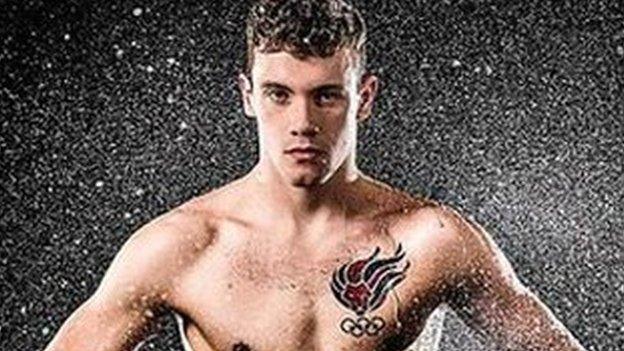Rio Paralympics 2016: Ex-Liverpool junior Sean Highdale is heading to Rio
- Published
Rio 2016 Paralympics: Jamie Carragher gave me boost to get to Rio
Paralympic Games on the BBC |
|---|
Venue: Rio de Janeiro, Brazil Dates: 7-18 September Time in Rio: BST -4 |
Coverage: Follow on Radio 5 live and via live text commentary |
Like anyone, no Paralympian is born great whatever privileges and opportunities they are born into. But some Paralympians more than others have the chance of greatness thrust upon them, catching them entirely unawares.
Born into a family of Liverpool fanatics, Sean Highdale was picked up by the club at the age of nine and earmarked for big things. "I'd be kicking a ball about with my dad," says Highdale, "and people would say to him: 'Your boy's gonna be some player.'" Maybe they were onto something. But would they find out?
Playing in the same Under-18s side as Tom Ince, Jay Spearing and Martin Kelly, Highdale won the FA Youth Cup in 2007, external. He also represented England Under-16s against Northern Ireland, playing alongside Jack Wilshere and Jack Rodwell, who now ply their trade for Bournemouth and Sunderland respectively.
After his last game for Liverpool's academy, Highdale was told he would be moving to Melwood, the club's main training facility, full time. Highdale, 16 at the time, heaved a happy sigh of relief: "Suddenly, that was my job."
"I was very confident I could go as far as I wanted to go," adds Highdale, a ball-playing midfielder. "It was April 2008 and I'd played very well against Derby. Twenty-four hours later, I was in a car crash with four of my friends.
"Two of my mates died, but I was one of the lucky ones. I snapped three of the four main ligaments in my right knee, broke my ankle and my neck, and had to have a kidney taken out. I was in a coma and didn't wake up for five days."
That's the thing about luck, it doesn't always look like you'd expect it to.
A month or so later, Liverpool arranged for Highdale to be transferred to a private hospital. Andy Williams, knee specialist to the stars, was called. Jamie Carragher, one of Highdale's heroes, dropped in to raise the spirits. But Highdale's spirits, temporarily raised, soon disappeared through the floor again.
"It was two years before I could even run," says Highdale. "I used to go in and watch the lads train every day and it would break my heart. I'd stand there on the sidelines and think: 'Could this ever be me again?'"
The doctors didn't think so and thought it best to inform Highdale that his football career was over. But Highdale still wasn't convinced.
Highdale's biggest idol was Steven Gerrard - "every time we saw him play, my dad would say: 'Watch how he moves, watch everything he does" - and one day the Liverpool captain invited the Highdale family to dinner at Melwood.
"We had a good chat and it gave me a boost," says Highdale. "He was easy to speak to and we all came away thinking what a nice fella he was."
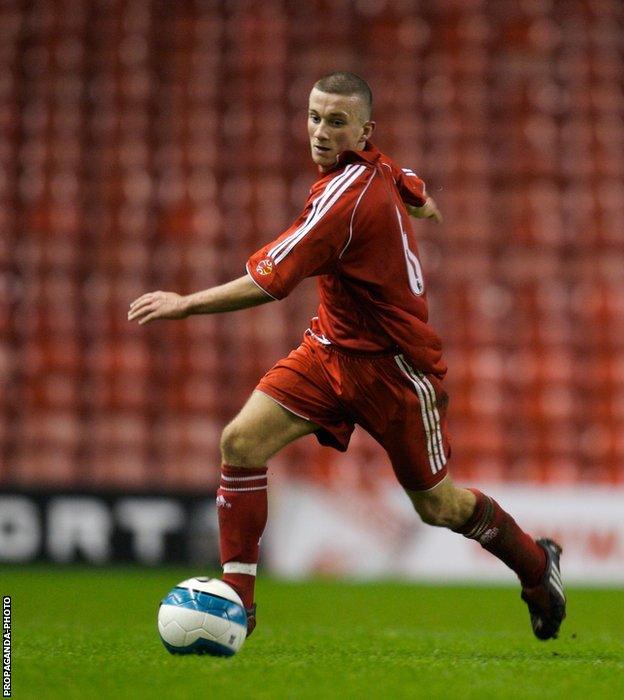
Sean Highdale in action for Liverpool against Arsenal during the FA Youth Cup fourth-round match at Anfield in 2008
Maybe Highdale didn't believe he would ever be the player Gerrard was, but he still believed he could be a player. Maybe not the player his dad's mates thought he would be, but a player nonetheless.
"Every hurdle they put in front of me I overcame," says Highdale. "There was lots of aqua running before I moved on to the running machine. I started taking bike rides around Kirkby and before I knew it I was back training with the lads.
"But Dave Galley [then Liverpool physio] advised Frank McParland [then academy director] that I wouldn't be able to play. At the time I felt OK, so it didn't make sense. But Dave said: 'It's not now, it's when you get older.'
"He was spot on, because even now my joints blow up and ache. But my dream had fallen apart. I went to MK Dons and Huddersfield, but it was hard to keep up. So I went a bit lower, to Accrington Stanley and Vauxhall Motors. But, eventually, I had to come to terms with the fact that football was not for me."
In 2013, 30 witnesses, including Carragher, Gerrard and Wilshere, attested that Highdale might, indeed, have graduated to the Liverpool first team had the car crash not intervened and he was awarded a seven-figure compensation pay-out. And next came that chance of greatness, from apparently nowhere.
It's not often that a bleed on the brain is described as a blessing. But in Paralympic sport, blessings are sometimes as difficult to decipher as luck.
"I'd never heard of CP football," says Highdale, referring to Cerebral Palsy football, which is open to those with who have suffered traumatic brain injuries.
"Jeff Davis [the FA's head of disability] sent me an email explaining what it was and asking if someone could come and assess me. They did the assessment, told me I was eligible to play and showed me a game from London 2012.
"When I went to St George's Park [the FA's National Football Centre] I thought it would be easy, but I was surprised at the standard. It's seven-a-side but played on a full-size pitch, so it's very demanding for a midfielder.
"I was a bit unsure at first, but I've enjoyed every single minute of it. I thought those days were over - nice facilities, playing on nice pitches. All gone. But joining up with the lads at St George's brought back so many good memories."
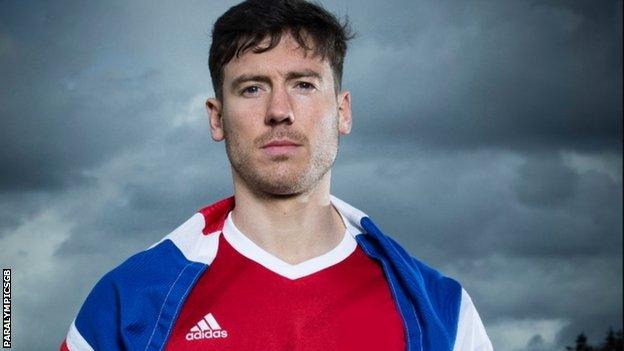
ParalympicsGB's 7-a-side football captain Jack Rutter is an ex-Birmingham City youth player
Highdale's skipper in Rio is Jack Rutter, an ex-Birmingham City youth player who suffered brain injuries after being attacked outside a nightclub. Playing in his third Paralympics will be Michael Barker, an ex-Everton youth player whose Premier League hopes went up in smoke when he was hit by a bus.
Like Highdale, Barker and Rutter were caught entirely unawares. Like Highdale, Barker and Rutter hope to make the most of that good luck.
"I fully expect us to be OK in Rio," says Highdale, whose GB team are in a group with hosts Brazil, World Championships runners-up Ukraine and Ireland.
"Mum and Dad are coming over. They get upset watching me play because it brings back memories. But they're very proud as well. We've got a very good team and I don't see why they won't see us get a medal."
Those sage-like men who thought the nine-year-old Highdale might amount to some player were right. Just not in the manner they might have expected.
Watch more on Sean Highdale's Paralympic journey on BBC News at 18:00 BST on Friday, 2 September.
- Published23 August 2016
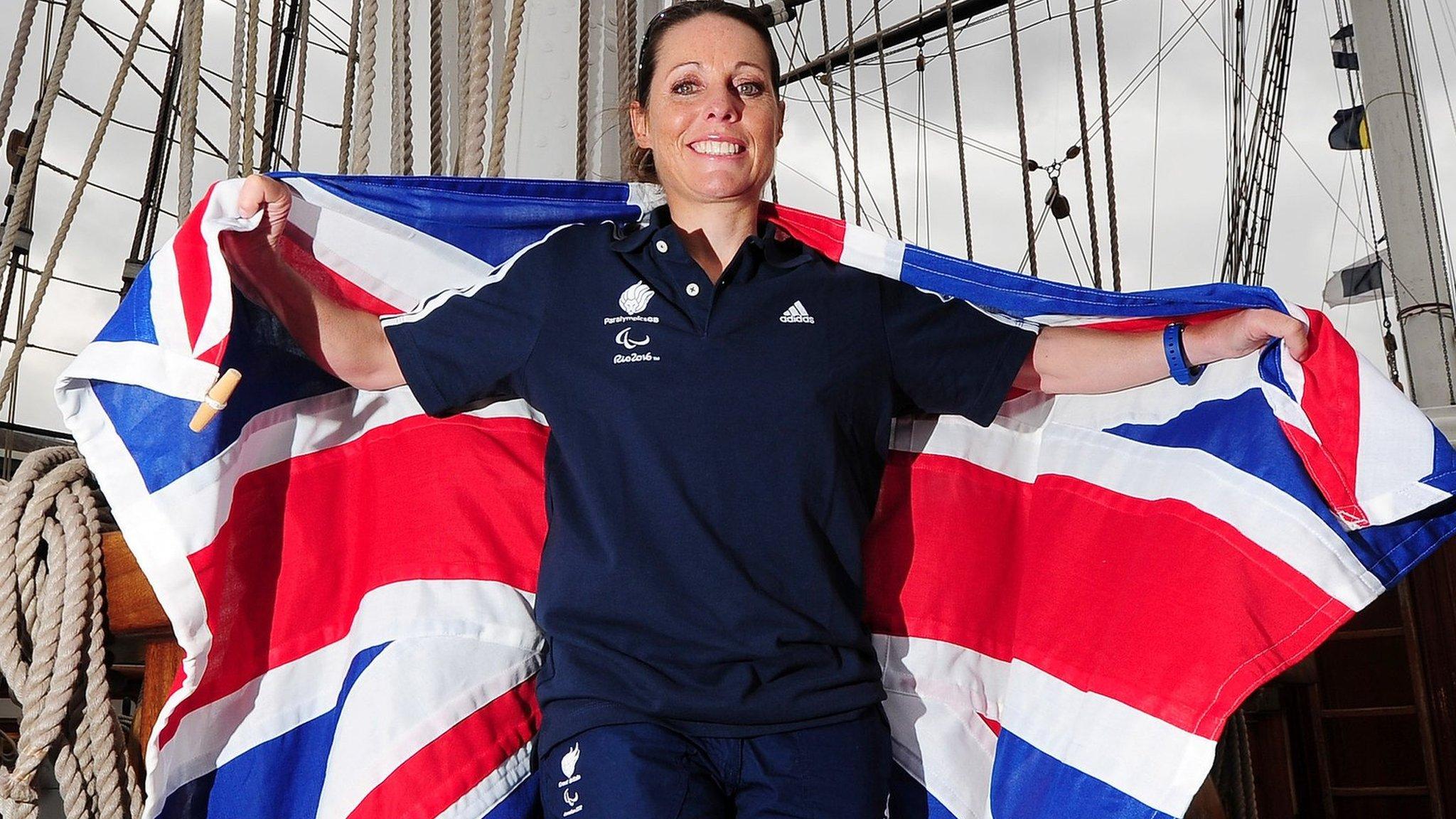
- Published29 August 2016
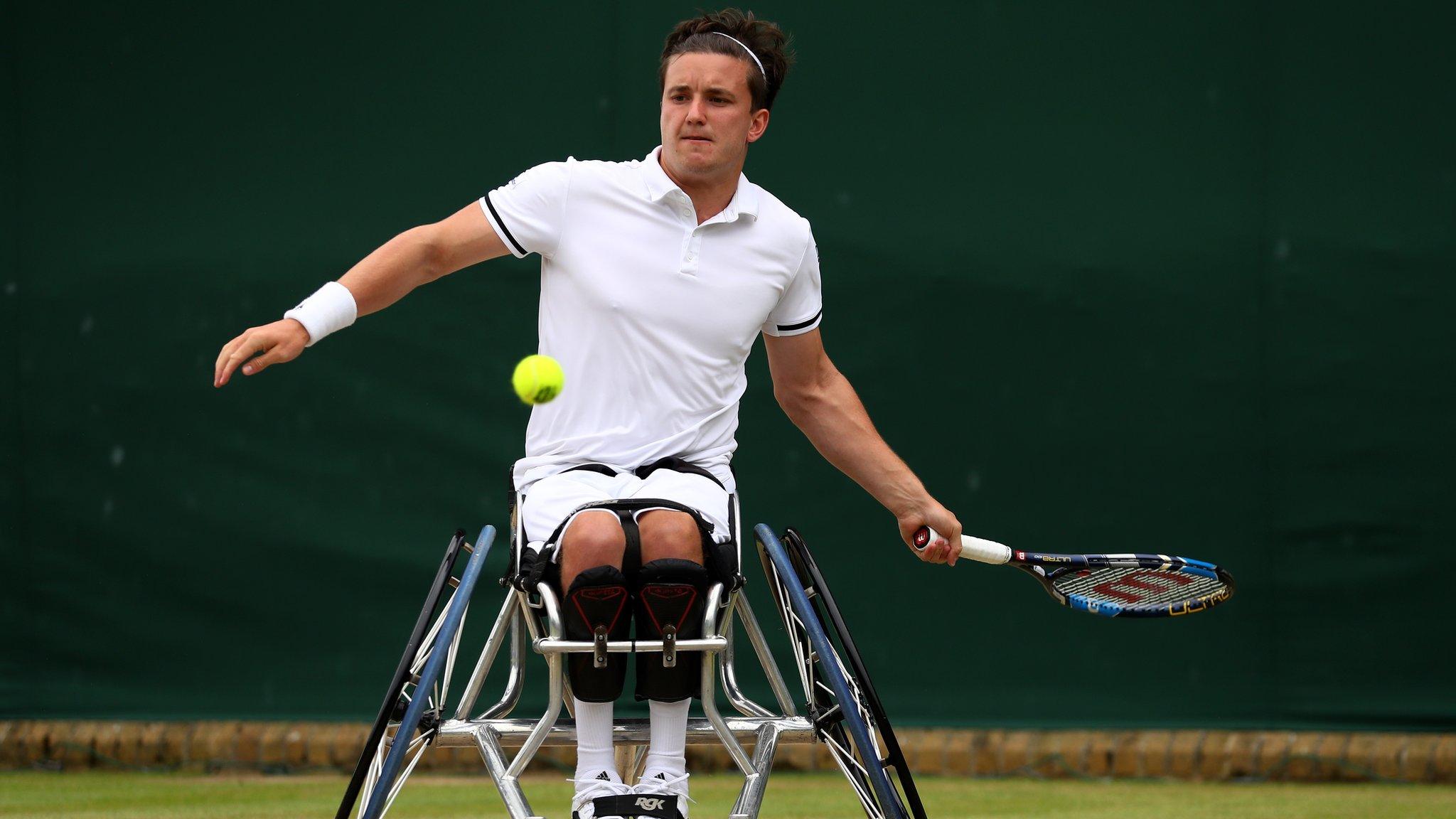
- Attribution
- Published30 August 2016
